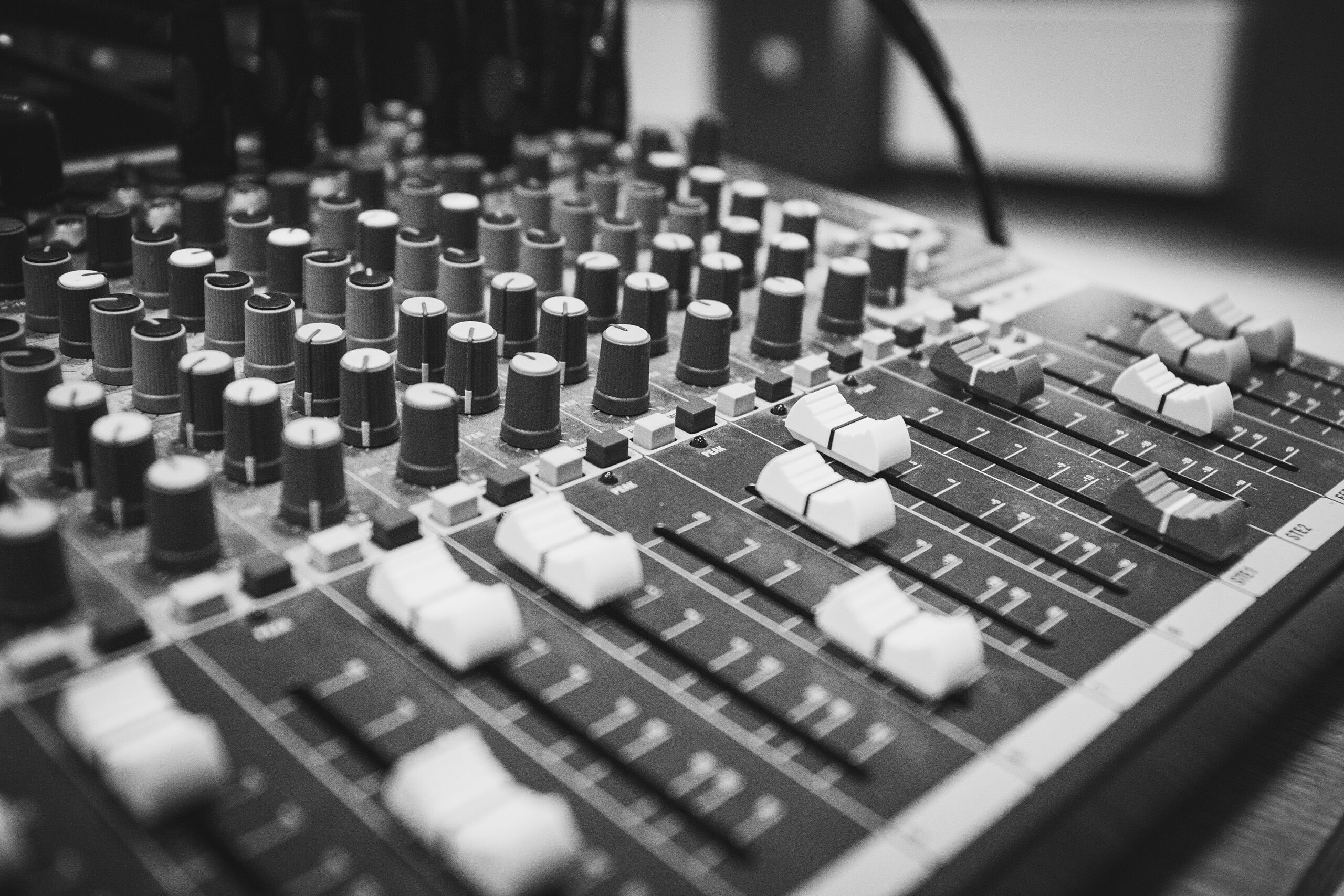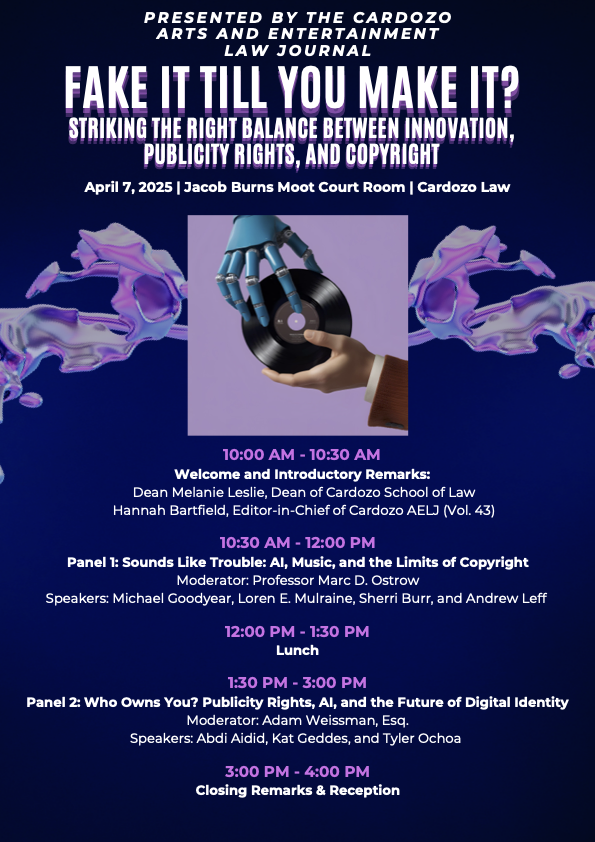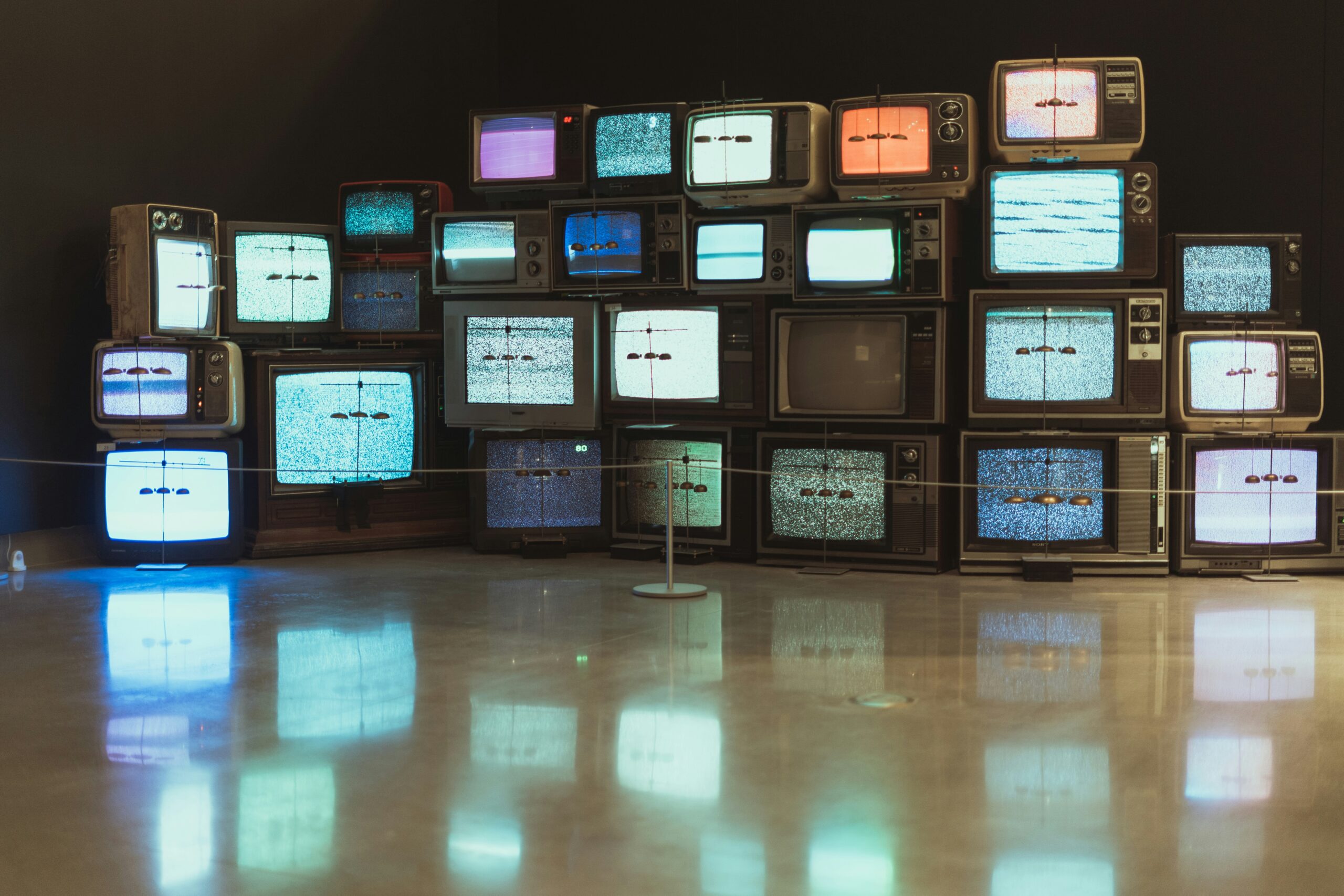The Rise of AI in Music: Legal Challenges and Copyright Concerns
ByTyler Caffrey
- On

In recent years, artificial intelligence (AI) has revolutionized various sectors, including the music industry. Companies like Suno and Udio, prominent players in the AI music generation market, have introduced innovative tools that allow users to create music from simple text prompts and also enable them to combine lyrics, instrumentals, and vocals.[1] However, these advancements raise significant legal challenges concerning copyright infringement and the future of music production.
Suno and Udio’s AI Models and Copyright Issues
Suno, a generative AI music company, has raised $125 million in funding to pursue its mission of democratizing music creation through AI technology.[2] With Suno’s proprietary AI models, users can generate full songs from text prompts, relying on OpenAI’s ChatGPT for lyric generation.[3] Despite its technological advancements, Suno’s refusal to disclose the specific data used to train its models raises concerns about the potential use of copyrighted materials without consent.[4] According to Ed Newton-Rex, founder of Fairly Trained, Suno’s AI-generated music bears a striking resemblance to copyrighted works, suggesting that Suno may have used such material without proper licenses.[5]
Udio, another AI music firm, faces similar challenges. One of its AI-generated tracks, “BBL Drizzy,” went viral for its parody, mocking Drake and referencing his ongoing feud with Kendrick Lamar, while featuring AI-generated vocals and instrumental backing.[6] Although Udio’s model has gained traction, a complaint filed by UMG Recordings, Inc., Warner Music, and Sony Music, among others, in the SDNY in 2024 raises concerns that its training practices may involve using copyrighted materials, potentially leading to infringement issues.[7] David Ding, Udio’s co-founder, has not revealed the specific sources used for training the company’s models, but stated “we train our model on publicly available data that we obtained from the internet. It’s basically, like, we train the model on good music just like how human musicians would listen to music.”[8]
The rise of AI music generation has further complicated the already challenging process of licensing music for commercial use.[9] Traditional music sampling requires negotiating licenses, a process that can take months and is costly for producers.[10] AI-generated music has the potential to bypass these challenges by creating new, original samples, but it raises significant legal questions about whether AI companies can use copyrighted materials as training data without permission.[11] Udio, for example, can generate music in the style of “Motown ‘70s soul,” a genre that is sampled in hip-hop.[12] Without clear information about the training data, it remains uncertain whether AI-generated samples will avoid the same legal risks as traditional music sampling.[13]
Legal Precedents: The Anthropic Case and the Role of Fair Use
One of the most high-profile legal battles surrounding AI music generation is the lawsuit against Anthropic PBC. In Concord Music Group v. Anthropic PBC, the plaintiffs allege that Anthropic used copyrighted lyrics to train its AI models without obtaining licenses.[14] The case was recently transferred to the Northern District of California, where it will continue to address these complex legal issues.[15] The central question in this case, and many others, is whether the use of copyrighted materials to train AI models can be justified under the fair use doctrine, which allows for the limited use of copyrighted works under certain conditions.[16]
The plaintiffs in the Anthropic case argue that the company’s behavior undermines the licensing market, asserting that Anthropic should have obtained licenses before using copyrighted material.[17] As AI companies continue to push the boundaries of copyright law, litigation is likely just the first step in establishing national policy on AI platforms’ use of copyrighted music, with legislative efforts following close behind.[18] This case sets a critical precedent, as the outcome could reshape the legal framework governing AI-generated content in the music industry.
Suno and Udio: Facing Lawsuits for Copyright Infringement
Suno and Udio have also found themselves embroiled in legal challenges. Sony Music, Warner Music Group, and Universal Music Group (UMG) have filed lawsuits against both companies, alleging that they have unlawfully copied sound recordings to train their AI models.[19] In the UMG v. Suno lawsuit, the plaintiffs argue that “[b]uilding and operating a service like Suno’s requires at the outset copying and ingesting massive amounts of data.”[20] This process, they claim, involves copying decades worth of sound recordings without obtaining licenses and using those recordings to create AI-generated music.[21]
Similarly, in UMG v. Udio, the plaintiffs allege that Udio has violated copyright law from the outset. The complaint states that “[s]ince the day it launched, Udio has flouted the rights of copyright owners in the music industry.”[22] These lawsuits, which seek injunctions and damages, highlight the growing tension between AI music companies and the traditional music industry.[23]
Notable Case: Tupac Shakur’s Estate and Drake’s AI-Generated Freestyle
The use of AI-generated vocals has caused controversy even for private parties. In April 2024, Tupac Shakur’s estate threatened legal action against Drake over his AI-generated song “Taylor Made Freestyle,” which used Tupac’s voice without authorization.[24] In a cease-and-desist letter, the estate’s attorney stated that the record was “a flagrant violation of Tupac’s publicity and the estate’s legal rights” and an abuse of the artist’s legacy.[25] The estate also highlighted that the use of Tupac’s voice in a track aimed at Kendrick Lamar, a friend of Tupac’s estate, “compound[ed] the insult.”[26] Following the legal threat, Drake removed the track from social media within 24 hours.[27] This case demonstrates the challenges of using AI to replicate the voices of iconic artists without their estate’s approval.
Congressional Response: The Generative AI Copyright Disclosure Act
In response to growing concerns over AI’s impact on the creative industries, lawmakers are stepping in. In April 2024, Representative Adam Schiff introduced the Generative AI Copyright Disclosure Act, which aims to increase transparency in the use of copyrighted works by AI companies.[28] Under the proposed bill, AI companies would be required to submit a notice to the Register of Copyrights detailing the copyrighted works used to train their models.[29] The bill stipulates that “a sufficiently detailed summary of any copyrighted works used” must be provided, along with the dataset URL, if publicly available.[30]
The bill also establishes penalties for non-compliance, with fines starting at $5,000 for companies that fail to disclose their training data.[31] This legislation represents a significant step toward addressing the legal uncertainties surrounding AI-generated content. By requiring transparency, the law aims to ensure that artists and copyright holders are aware of when their works are used without permission.[32] The bill has received broad support from the music industry, with organizations like the Recording Industry Association of America (RIAA) and the National Music Publishers’ Association (NMPA) advocating for its passage.[33]
Conclusion
The rise of AI in music presents exciting opportunities for creativity but also significant legal challenges. Companies like Suno and Udio have pushed the boundaries of what AI can achieve in music generation, but their reliance on copyrighted materials without proper licenses has led to a series of lawsuits. The Anthropic case and the introduction of the Generative AI Copyright Disclosure Act underscore the urgency of establishing clear legal guidelines for AI in music. As the courts and lawmakers grapple with these complex issues, the future of AI in music will depend on striking a balance between technological innovation and the protection of artists’ rights.
Tyler Caffrey is a third-year law student at the Benjamin N. Cardozo School of Law, with a strong interest in music law and fashion law. He is currently externing with the New York Law Department Labor and Employment Division.
[1] Kristin Robinson, AI Music Firm Suno Raises $125M in Funding, Billboard (May 21, 2024) https://www.billboard.com/business/tech/ai-music-company-suno-raises-new-funding-round-1235688773/ [https://perma.cc/QY3L-2NJY].
[2] Id.
[3] Id.
[4] Id.
[5] Suno is a Music AI Company Aiming to Generate $120 Billion Per Year. But is it Trained on Copyrighted Recordings?, Music Business Worldwide (April 2, 2024), https://www.musicbusinessworldwide.com/suno-is-a-music-ai-company-aiming-to-generate-120-billion-per-year-newton-rex/ [https://perma.cc/92YH-ZQ7K].
[6] Kristin Robinson, Metro Boomin’s ‘BBL Drizzy’ Is More Than a Joke – It Could Signal the Future of Sampling, Billboard (May 15, 2024) https://www.billboard.com/business/tech/metro-boomin-bbl-drizzy-future-ai-sampling-1235682587/ [https://perma.cc/W6AE-F889].
[7] Complaint, UMG Recordings, Inc. v. Unchartered Labs, Inc., No. 1:24-CV-04777 (S.D.N.Y. June 24, 2024) [hereinafter UMG v. Udio].
[8] Robinson, supra note 6.
[9] Robinson, supra note 6.
[10] Id.
[11] Id.
[12] Id.
[13] UMG v. Udio, supra note 7.
[14] Bill Donahue, Universal Sues AI Company For Using Songs To Train Models: ‘Systematic & Widespread Infringement,’ Billboard (Oct. 18, 2023) https://www.billboard.com/pro/universal-music-sues-ai-company-using-songs-train-models/ [https://perma.cc/3CFM-JNTB].
[15] Concord Music Grp. v. Anthropic PBC, No. 3:23-cv-01092 (M.D. Tenn. June 24, 2024).
[16] Donahue, supra note 14.
[17] Anthropic, No. 3:34-cv-01092.
[18] Id.
[19] Kristin Robinson, Major Labels Lawsuit Sue AI Firms Suno and Udio for Alleged Copyright Infringement, Billboard (June 24, 2024) https://www.billboard.com/pro/major-label-lawsuit-ai-firms-suno-udio-copyright-infringement/ [https://perma.cc/9WCW-KVDE].
[20] Complaint, UMG Recordings, Inc. v. Suno, Inc., No. 1:24-CV-11611, at 3 (S.D.N.Y. June 24, 2024) [hereinafter UMG v. Suno].
[21] Id.
[22] UMG v. Udio, supra note 7, at 36.
[23] UMG v. Suno, supra note 20, at 6; UMG v. Udio, supra note 7, at 6.
[24] Michael Saponara, Sheryl Crow Blasts Drake’s Use of 2Pac AI Vocals on ‘Taylor Made Freestyle’: ‘It’s Hateful,’ Billboard (June 26, 2024) https://www.billboard.com/music/rb-hip-hop/sheryl-crow-slams-drake-taylor-made-freestyle-2pac-ai-vocals-1235718366/ [https://perma.cc/A878-RPDU].
[25] Id.
[26] Id.
[27] Id.
[28] Generative AI Copyright Disclosure Act of 2024, H.R. 7913, 118th Cong. (2024).
[29] Id.
[30] Id.
[31] Id.
[32] Kristin Robinson, New Federal Bill Could Require Disclosure of Songs Used in AI Training, Billboard (April 9, 2024) https://www.billboard.com/business/legal/federal-bill-ai-training-require-disclosure-songs-used-1235651089/ [https://perma.cc/B5LV-5VAM].
[33] Id.



